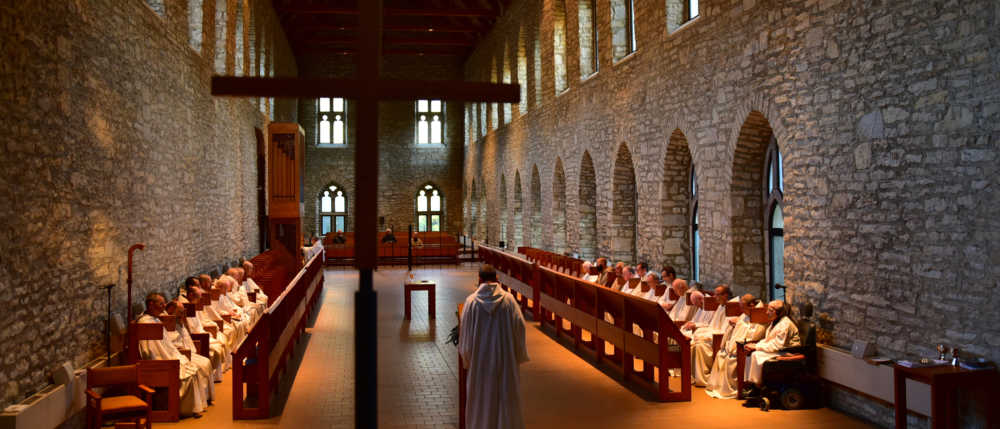
What We Can Learn from Monks
My college and much of my post-graduate education was provided by Benedictine monks.
For those unfamiliar with Christian monasticism, it’s an ancient form of living the gospel through a combination of prayer – including contemplative prayer – and work.
Inspired by references in the New Testament about Jesus going to solitary places to pray, the roots of Christian monasticism began to sprout in about 270 AD with people such as St. Anthony of Egypt going to the desert to find solitude and the peace needed to pray and meditate.
Spirit of Balance, Moderation and Reasonableness
The “mono” – meaning one – in monasticism implies solitude. Monasteries came later as the “desert fathers” (and mothers) began coming together to pray in common. And a major step was taken by St. Benedict of Nursia in Italy (d. 548). He wrote the famous “Rule of St. Benedict,” which, according to Wikipedia, “has a unique spirit of balance, moderation and reasonableness.”
His rule, sometimes with alterations, was adopted by most religious communities in Europe and later by many monks in the Greek and Russian orthodox churches. And, of course, there are monks in other religions, notably Buddhism.
I’ve never been tempted to join a monastery. During my time in the relatively isolated seminary with the monks, in fact, my friends and I spent much of our time plotting ways to get away from the place.
Dedication to Prayer and Contemplation
Nonetheless, I admire men and women who join monasteries and am a supporter of their dedication to prayer and contemplation.
Unfortunately, many people have distorted views of monks and contemplative nuns. They see the monks’ and nuns’ lives as a waste of time and talent. They may believe that people join monasteries to “hide from the world,” or that they are rejecting their place in society.
I suppose it has a lot to do with your view of the value of prayer and being in an environment that is conducive to prayer and contemplation. You don’t have to be a monk or nun to pray, of course, but I find it reassuring that there is a whole army of people praying for the church and the world.
“If you ever have occasion to spend time at our community bulletin board you will find prayer requests from all over the world pinned to it,” says the web site, https://newmelleray.org of New Melleray Abbey in northwestern Iowa. It’s a monastery of Trappist monks, who follow the “strict observance” of the rule of St. Benedict.
“In these urgent notes we hear the cry of God’s suffering children addressed to us with touching simplicity and trust. These brothers and sisters know instinctively that our monastic life separated from the world enables us to foster a life of continuous prayer for the world.”
Radically Counter-Cultural
Monasticism is, of course, radically counter-cultural, and few people today appear to be drawn to such a life. My wife, Amparo, and I have made annual spiritual retreats at New Melleray, and judging by the number of monks who are at the seven-times-a-day prayer in the Abbey church, only a couple of the 20 or so monks are under the age of 60. The last time we were there, one of the monks told me he believes the monastery will have to close in a few years because of the lack of new members.
So what does all this have to do with the search for God?
It’s just that apart from the prayers they offer – including prayers for us who are searching for God – the existence of Christian monks continuously reminds us of the importance of prayer and silent solitude. The world is busy and noisy, and our minds are full of the noise – of the constant evaluation of people and groups, of what we have to do, what we have to earn, where we have to go, what the future holds for us.
The monks remind us that we need to regularly get away from it all to be alone, not necessarily in a monastery, but in a room in our house, in the outdoors, maybe even in our car. In my view, no search for God can be successful without thoughtful prayer.





